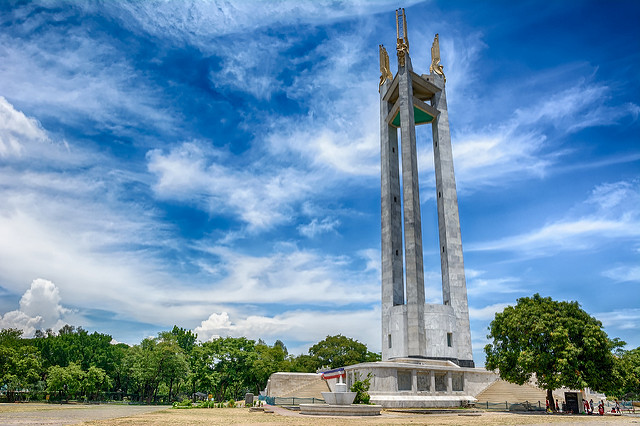MANILA — A youth group on Monday asked the Supreme Court (SC) to reverse its ruling on the legality of a Quezon City ordinance imposing curfew on minors.
In an 18-page motion for reconsideration filed before the high court, the Samahan ng Progresibong Kabataan (Spark) sought the reversal of the court’s ruling affirming the implementation of the ordinance “for failing to pass a strict scrutiny test” and estimated that some of their arguments may have been “overlooked and misappreciated”.
“SPARK maintains that the QC curfew ordinance, closely similar to that of the cities of Manila and Navotas encourages arbitrary and discriminatory enforcement and infringes on the constitutional rights of minors and parents alike,” the group said in a statement.
The youth group said the SC may have accidentally and adversely committed judicial legislation in its decision.
The group said the SC misinterpreted Section 4 (a) of the QC ordinance which exempts minors given permission by parents to loiter beyond the curfew hours as one and the same with minors being accompanied by parents or guardians, which the ordinance particularly speciified.
Such an interpretation of the provision, they claimed, “may render the ordinance either tokenistic and toothless or worse, enable arbitrary enforcement,” the group said.
SPARK argued that “If parental permission is an exception under the Quezon City Ordinance, it begs the question of enforcement in terms of how law enforcers will determine if there was parental permission indeed given.”
“The SC might have overlooked that they created an exemption – implied parental permission – that could not be found in the ordinance. That is judicial legislation. The local legislative council should amend the ordinance themselves,” legal counsel of the petitioners, Jesus Falcis III disclosed.
“Our decision to seek reconsideration from the high court could not be more timelier as civil liberties are threatened and rights advocates slandered, worse, law-abiding minors are wantonly being targetted by police forces,” said Joanne Lim, SPARK spokesperon.
The SC en banc, in a 40-page decision, declared curfew ordinances in the cities of Manila and Navotas as unconstitutional as it interferes with fundamental rights of the minors’ exercise of their right to travel under Section 6, Art.
III of the Constitution.
It found that only the Quezon City ordinance met the requirement of being “narrowly tailored as to ensure minimal constraint not only on the minors’ right to travel but also on their other constitutional rights.”
The SC ruled that a similar ordinance on curfew in Quezon City — Ordinance No. SP 2301- 2014 — ” an Ordinance Setting for a [sic] Disciplinary Hours in Quezon City for Minors from 10 p.m. to 5 a.m. providing Penalties for Parent/Guardian, for Violation Thereof and for Other Purposes” as constitutional.
In a 40-page decision in GR No. 225442 (Samahan ng mga Progresibong Kabataan [SPARK] v. Quezon City), promulgated on August 8, 2017, the Court En Banc declared Ordinance No. 8046 of the City of Manila entitled “An Ordinance Declaring the Hours from 10 p.m. to 4 a.m. of the Following Day as ‘Barangay Curfew Hours’ for Children and Youths Below 18 Years of Age; Prescribing Penalties Therefor; and for Other Purposes”).
The High Court also struck down “Pambayang Ordinansa Blg. No. 99-02, as amended by Pambansang Ordinansa Blg. 2002-13 of Navotas City entitled ‘Nagtatakda ng Curfew’ ng mga Kabataan na Wala Pang Labing Walong (18) Taong Gulang sa Bayan ng Navotas, Kalakhang Maynila”.
In ruling on the petition for certiorari and prohibition filed by SPARK questioning the constitutionality of the curfew ordinances, the Court found it proper to examine the assailed regulations under the strict scrutiny test — the test of judicial scrutiny which applies when a classification interferes with the exercise of fundamental rights — as the ordinances set restrictions on the minors’ exercise of their right to travel under Section 6, Art. III of the Constitution.
Under the strict scrutiny test, the government has the burden of proving that the classification is necessary to achieve a compelling state interest, and is the least restrictive means to protect such interest or the means chosen is narrowly tailored to accomplish the interest.
The Court said that while all three curfew ordinances passed the first prong of the strict scrutiny test in that “they not only conveyed but, in fact, attempted to substantiate legitimate concerns on public welfare, especially with respect to minors,” each of the ordinances must still be “narrowly tailored as to ensure minimal constraint not only on the minors’ right to travel but also on their other constitutional rights.”
After a thorough evaluation of the provisions of the ordinances, the Court found that only the Quezon City ordinance met the said requirement as the Manila and Navotas ordinances were not narrowly drawn in that their exceptions were inadequate and run the risk of overly restricting the minors’ fundamental freedoms.
The Court noted that the Quezon City ordinance “stands in stark contrast to the first two ordinances as it sufficiently safeguards the minors’ constitutional rights” as its list of exceptions is more narrowly drawn to sufficiently protect the minors’ rights of association, free exercise of religion, travel, to peaceably assemble, and of free expression.
“In particular, the Quezon City Ordinance provides for adequate exceptions that enable minors to freely exercise their fundamental rights during the prescribed curfew hours, and therefore, narrowly drawn to achieve the State’s purpose,” said the Court.






















